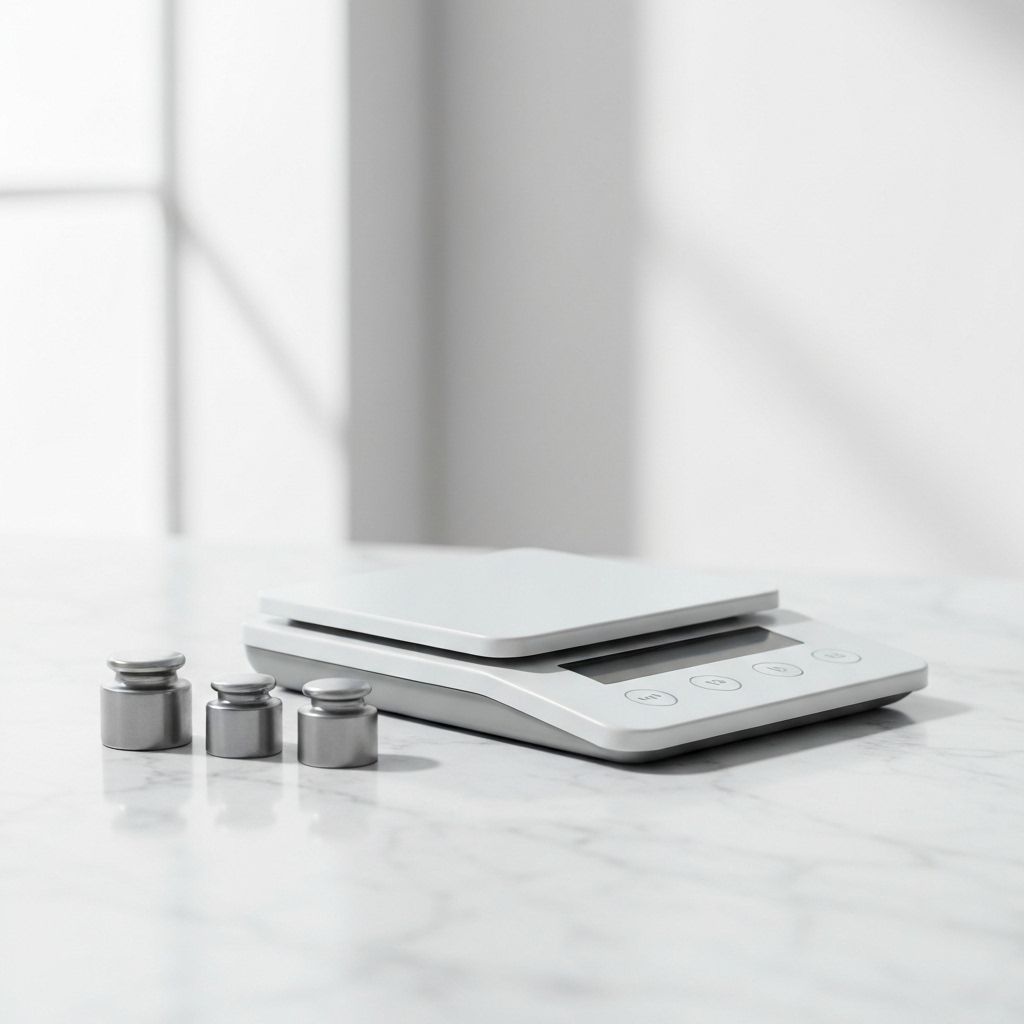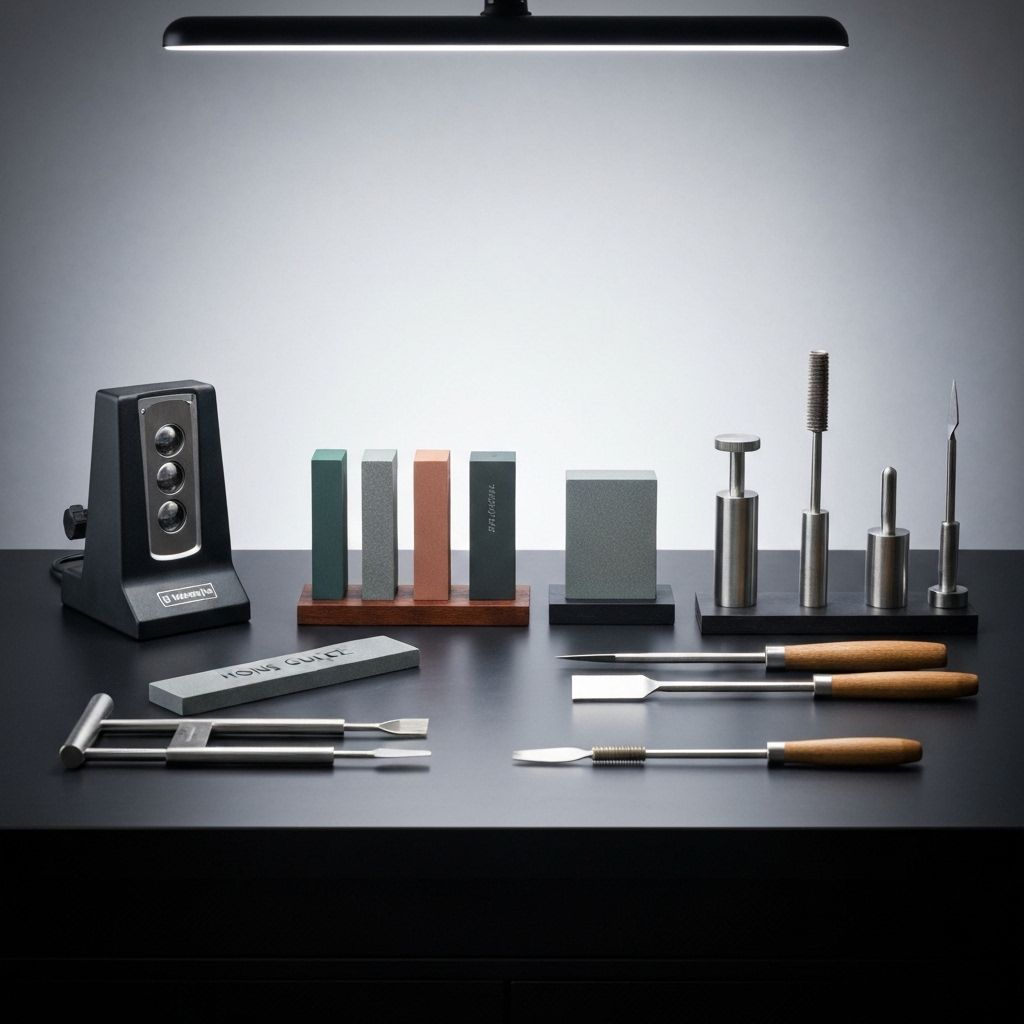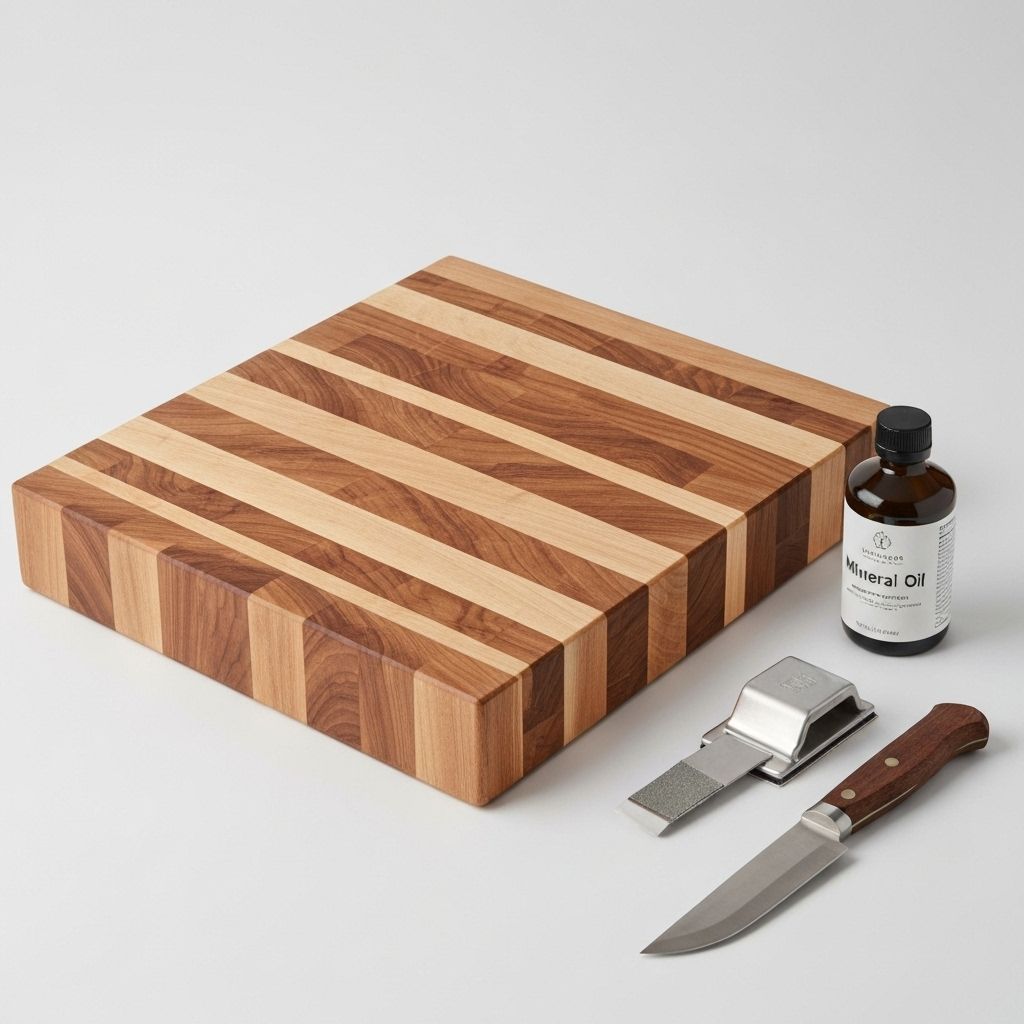Maintaining Precision: Scale Calibration and Care Protocols
Ensure your precision instruments maintain laboratory-grade accuracy with proper calibration and maintenance.
- Answer the main question in one sentence.
- Give the best pick and why in one line.
- Link to the product or guide for next step.

Precision scales require regular calibration to maintain accuracy. Environmental factors—temperature, humidity, vibration—can affect sensor performance over time. Professional calibration should occur quarterly, with weekly verification using certified calibration weights.
Place your scale on a stable, level surface away from air currents and vibration sources. Even minor air movement can affect readings at 0.1g precision. A marble or granite surface provides ideal stability and thermal mass to minimize temperature fluctuations.
Clean the weighing platform after each use with a soft, lint-free cloth. Avoid harsh chemicals that can damage the load cell or display. For stubborn residue, use isopropyl alcohol applied to the cloth, never directly to the scale.
Store calibration weights in their protective case, handling them only with tweezers or gloves. Skin oils can alter weight over time, compromising calibration accuracy. Verify weights annually against certified standards to ensure continued precision.
Battery-powered scales should be recalibrated after battery replacement, as voltage variations can affect sensor readings. For critical applications, use AC power to eliminate this variable entirely.
// RELATED_ARTICLES

Precision Maintenance: Caring for Your High-Carbon Steel Knives
A comprehensive guide to maintaining the performance and appearance of your precision cutlery.

Cutting Surface Science: Selecting and Maintaining the Ideal Work Surface
Learn how cutting board material affects knife edge retention and food safety, plus proper maintenance protocols.